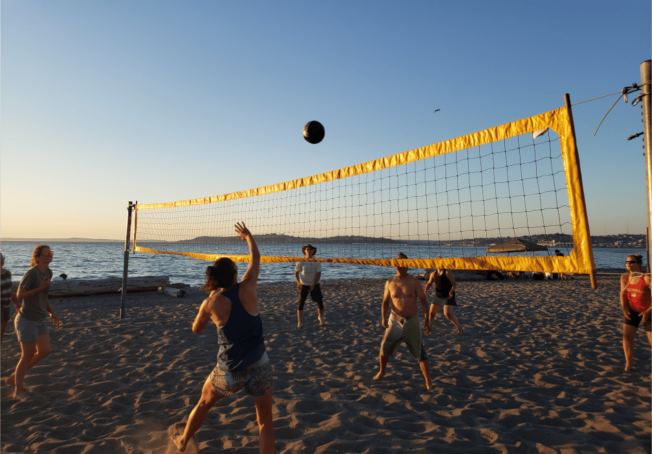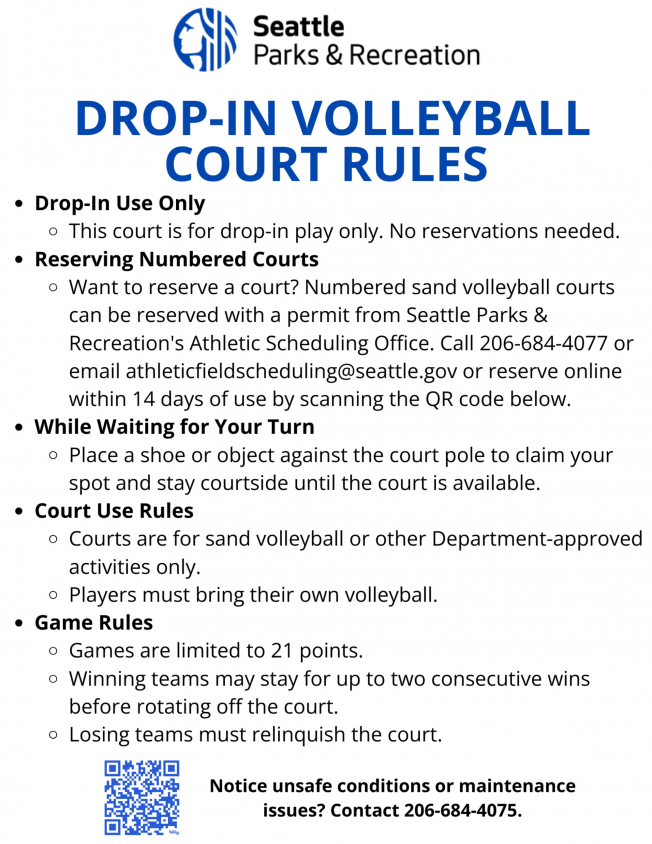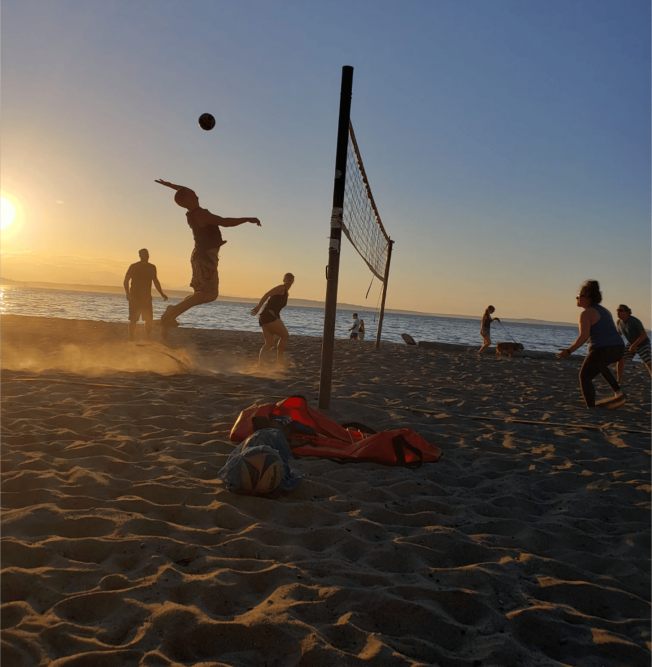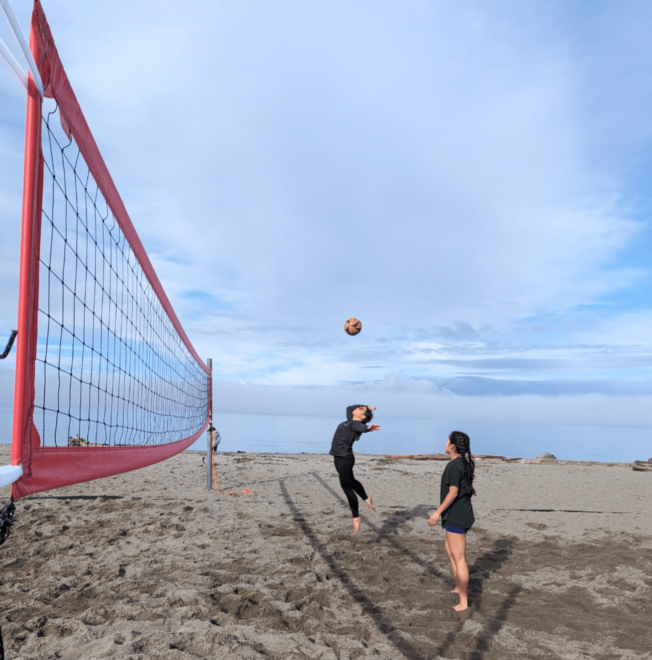Your cart is currently empty!
Beach volleyball on Alki is about to get more accessible and safer, thanks to new type of court
By Hayden Yu Andersen
Reporting for West Seattle Blog
It’s difficult to imagine a day at Alki Beach without volleyball. Beachgoers stringing up nets and playing, in between trips to coolers, or across the street in search of refreshments, are a frequent sight between June and August. If you’ve ever seen groups playing and wanted to join in, starting Wednesday (July 23), you’ll get the chance, as Alki Beach gets its first-ever permanent Volleyball court, across from the Christos on Alki/future Do Si KBBQ building [map].
 (Photos courtesy Hannah Cassius)
(Photos courtesy Hannah Cassius)
It’s easy to assume that because the beach has volleyball poles, it has an accessible setup, explained Hannah Cassius, who helped organize this project in cooperation with the Seattle Parks and Recreation Department after she noticed several problems with their old system. The new court will feature clearer lines and a permanent net, scheduled to go up this week.
Until now, the lack of a permanent net and the poorly defined court have led to two problems, Cassius said. First, if you don’t have a net or a friend to play with, it makes the pastime inaccessible for the average person. The new court, which is set to open at 9 am on Wednesday, will feature a permanent net and a clearly defined court. As Cassius put it, “If you’re walking on the beach and you wanna play, you can play.”
The second problem was safety and quality. “We would find glass and nails in the sand, and the poles were crooked,” she said. “So having these permanent lines and nets makes beach volleyball more accessible to the community.”
The new court runs on a special system, called a “challenge court,” that keeps with the competitive spirit of the sport, while making it accessible to new players. If you want to play, you set down your sandal in a line to indicate your space. While people often show up in groups, there are no rules preventing anyone from simply walking up and joining the line to play. If you win your match, you get to stay for a maximum of two games before going to the back of the line.
“Here’s a hypothetical example,” Cassius said, “My husband Reid and I are playing against two other friends of ours, Brandon and Anissa. You put your shoe in line to play the winner. Reid and I win the game. We play you and your friend.” While this is new to Seattle, challenge courts are common at public volleyball courts in other states, like New York and California, according to Cassius.
 (Seattle Parks Department rules)
(Seattle Parks Department rules)
The issues first came up earlier this year, at a Parks and Recreation Department town hall. Then, she slowly began to drum up support from the local volleyball community. Watching people come out in force, and the Parks Department’s quick and enthusiastic response to the quickly growing group’s concerns, was both surprising and heartwarming. Several hands-on work days and a change.org petition later, the courts are about to open to the public. According to Lisa Nielsen, the Athletic and Event Scheduling Manager with Seattle Parks and Recreation, the cost was approximately $900, covered by reservations for the other, non-permanent courts.
“I was actually positively surprised,” she said. “A lot of the older volleyball players said ‘the Parks Department doesn’t do anything, you won’t see any changes, et cetera,’ and for many of us, it was our first time working with them, but they’ve been with us every step of the way.”
Permanent courts on Alki aren’t the only thing they’ve managed to get done in cooperation with the Parks Department. They’ve managed to update the Volleyball poles to support men’s, women’s, and co-ed play, leveled the sand around the court, had the Alki showers turned on in April (in previous years they’ve waited until late May or June to turn them on), and even increased restroom maintenance.
They’re not done yet, though. Cassius says they have plans on the horizon to set up a community tool shed, with sifters and rakes to keep the courts safe, and add even more poles and sand. “At the end of the day,” She said, “ the larger Seattle volleyball community is a lot of people, from a lot of diverse backgrounds, but everyone is united by wanting to play this sport. This is an opportunity for more public athletic spaces with the community.”


